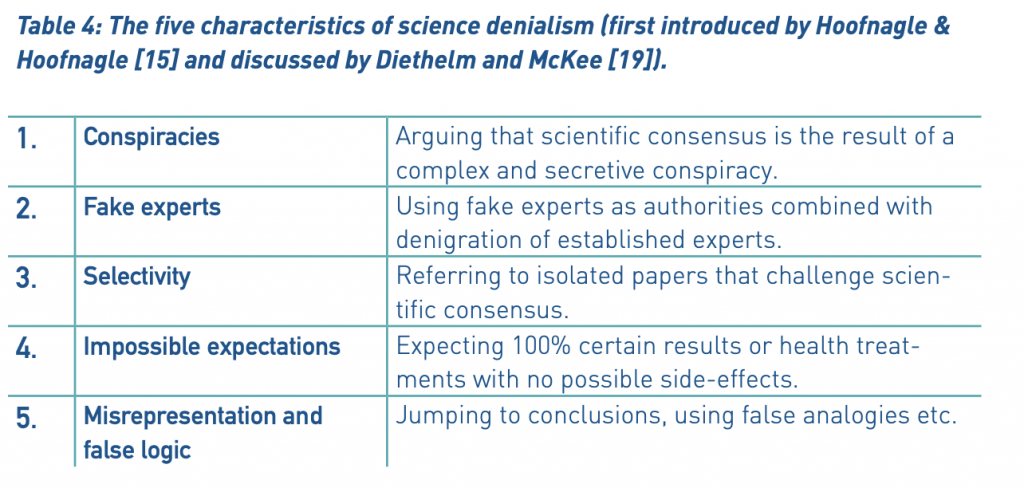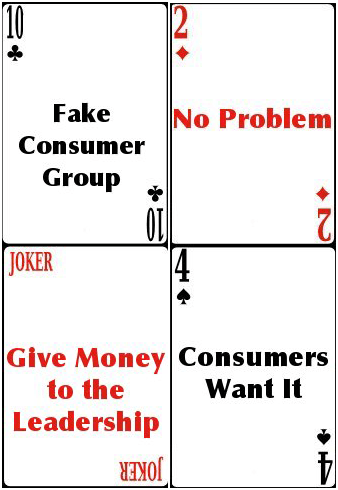Before coming to Berkeley, I worked in Washington, DC as a privacy advocate. I was struck by the character of policy debates there. Industries lobbied using a blend of libertarian and one-eyed public choice argument, repeating it so often that to me it sounded like simple cliché. In fact, it wasn’t debate, it was intransigence.
My brother Mark and I spent a lot of time talking about rhetorical technique and developed what we saw into the concept of “denialism.” In What is Denialism?, we explained denialism as rhetoric that gave the appearance of a debate but was actually a charade. I also, awkwardly, tried to illustrate denialism as a Deck of Cards. At the time, we were not aware that Albert Hirschman had modeled much of the problem. Nowadays, denialism would be recognized as a technique of disinformation.
Mark and I are broadly credited with developing the fundamental contours of denialism.

The techniques of denialism–conspiracy theories, cherry-picking data, fake experts, moving goalposts, and logical fallacies–work. The key is not to engage them, but to teach others how to recognize misleading forms of argumentation. This approach, sometimes called “technique rebuttal,” has been tested in the literature.
In Berkeley, I’ve had fun with a new form of intransigent rhetoric—the problem of NIMBYism. So called BANANA, Build Absolutely Nothing Anywhere Near Anything is prominent in Berkeley. Here is how BANANA works:


